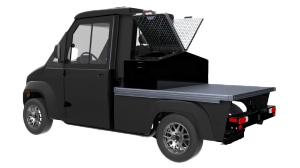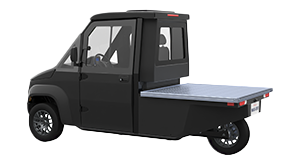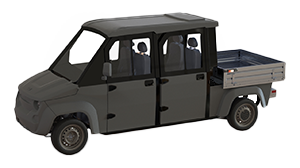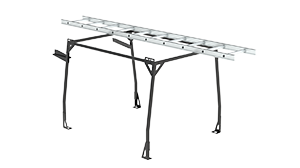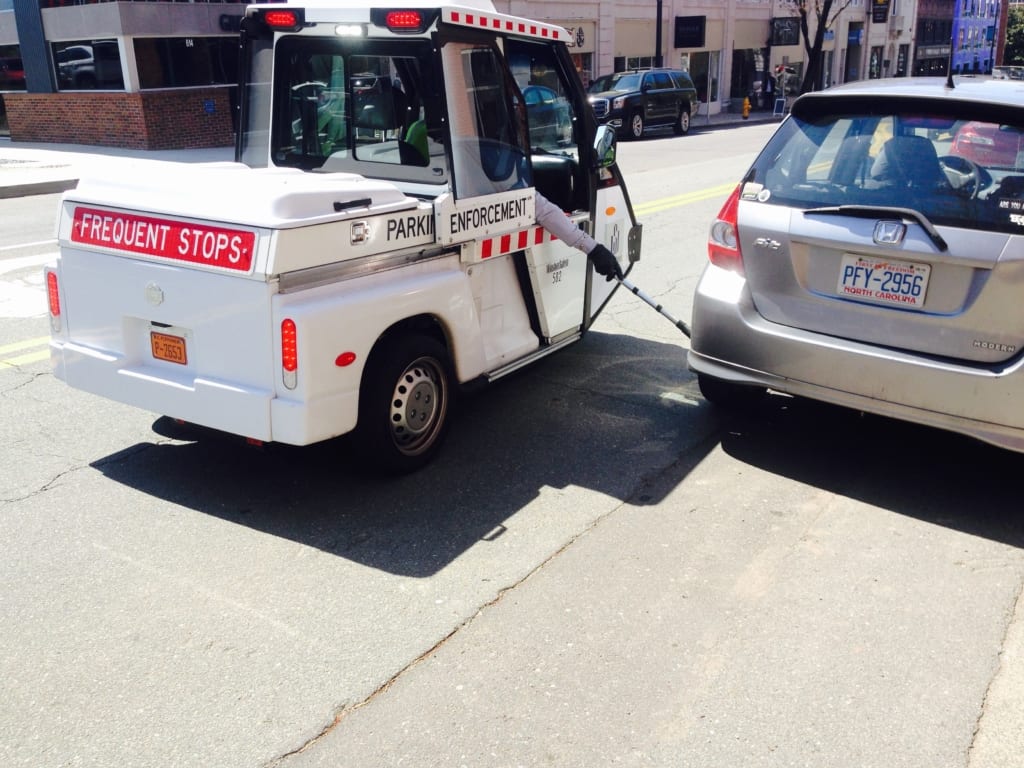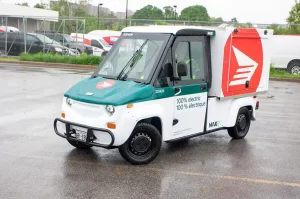In 2014, a resident of Saginaw, Michigan received fifteen parking tickets “for allegedly exceeding the time limit of a parking spot.” The tickets were issued by Saginaw’s “most prolific issuer of parking tickets.” Each parking ticket include the date and time that the tire of the resident’s vehicle was marked with a “chalk-like substance.” The recipient of the tickets hired a lawyer and challenged the “methodology of placing a chalk mark on one of the four tires of the vehicles to obtain information to justify the issuance of tickets throughout the territorial limits of the City of Saginaw.” The ticket recipient’s lawyer sought to make frame the issue as a class action lawsuit on the theory that the “chalk marks violate the Fourth Amendment of the United States Constitution.” On a motion from the City, the district court initially dismissed the complaint. The ticket recipient appealed to the United States Court of Appeals, Sixth Circuit.
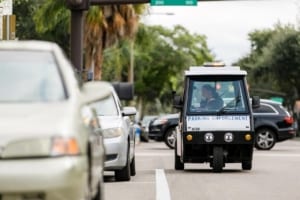
The legal argument over the validity of tire chalking is whether the parking enforcement technique is a violation of the Fourth Amendment to the United States Constitution which prohibits unreasonable searches and seizures. The Fourth Amendment states: “the right of the people to be secure in their persons, houses, papers, and effects, against unreasonable searches and seizures, shall not be violated, and no Warrants shall issues, but upon probable cause, supported by Oath or affirmation, and particularly describing the place to be searched, and the persons or things to be seized.” U.S. Const. Amend. IV. The Fourth Amendment review is a two-part test: 1) did a search or seizure occur, and if so, 2) was that search or seizure unreasonable? The ticket recipient tried to extend the holding of a recent case that decided the government’s installation of a GPS device on a target’s vehicle was a search under the Fourth Amendment because the physical installation of the device on the vehicle constituted a trespass of the car owner’s property rights. However, trespass alone does not qualify as a search, rather, there must be both trespass and “an attempt to find something or to obtain information.” This was the key question reviewed by the court.
The court found that “despite the low-tech nature of the investigative technique, the chalk marks clearly provided information” to the parking enforcement officer. The chalk marks serve to identify the vehicles and when they parked. The court concluded that a “search” does likely occur when a tire is chalked. However, the analysis must also resolve whether the search is reasonable. As a matter of law, the search of an automobile is far less intrusive than the search of a person or building because car exists on public streets in plain view to the public. Ultimately the court concluded the minor nature of the physical intrusion of tire chalking, the government’s undeniable authority to enforce parking meter time limits, even if tire chalking could be considered a search, it was reasonable. Accordingly, the complaint was dismissed in September of 2017. However, this was not the end of the case…
The ticket recipient appealed to the United States Court of Appeals for the Sixth Circuit. The appellate court disagreed with the trial court and found that the lower court applied the wrong legal standard to its decision and sent the case back for further proceedings. The appellate court issued an amended opinion with the following additional language:
“Taking the allegations in the complaint as true, we hold that chalking is a search under the Fourth Amendment, specifically under the Supreme Court’s decision in Jones. This does not mean, however, that chalking violate the Fourth Amendment. Rather, we hold, based on the pleading stage of this litigation, that two exceptions to the warrant requirement – the ‘community caretaking’ exception and the motor-vehicle exception – do not apply here. Our holding extends no further than this.”
On remand back to the lower court, a factual record was developed as to the custom and practice of tire-chalking. In the trial court’s second opinion dismissing the challenge, it relied on the facts in the affidavit from the City’s Director of Neighborhood Services and Inspections:
• That parking enforcement within the City is necessary to promote safe use of the roadways and downtown businesses.
• That parking enforcement within the City is necessary to promote equal access to limited parking spaces and the downtown businesses.
• That chalk was provided to the City enforcement officials as a means of enforcing parking ordinances by informing vehicle owners and/or operators that the officials were enforcing City Ordinances, including the time restrictions set forth therein.
On the basis of this critical factual record, and applying the proper legal standard, on-street parking enforcement has again been upheld. Street parking regulations are a proper exercise of a municipality’s police powers as it “bears a substantial relation to the public health, welfare, safety and morals” of the community. While tire-chalking does constitute a search for purposes of the 4th Amendment, it is a reasonable search in furtherance of a legitimate government purpose that falls within the administrative search exception. According to the opinion of the court, the government interest “promotes safety and order on its roadways and ensures that multiple people can access downtown businesses.” Because “regulating parking involves more than simply issuing a ticket and placing it on the vehicle” parking enforcement “may also involve other methods, such as chalking a vehicle’s tire to notify the driver that their parking time is being monitored.” Finally, “chalking may lead to more effective parking regulation because it reminds drivers to move their vehicles before their allotted time has expired.”
As of June 2020, on-street parking enforcement, and specifically tire-chalking, has been upheld by the courts. While there had been prior confusion or uncertainty as to the legal status of tire-chalking, the matter is now concluded, and tire-chalking has been upheld as a legal parking enforcement practice. The case that brought the tire-chalking controversy to the courts and media attention has been dismissed again and on-street parking enforcement will continue to be upheld.
For more information about the recent decision upholding on-street parking enforcement, check out this recent article from IPMI’s Parking & Mobility magazine.
Westward Vehicles is the manufacturer of the iconic GO-4 PSV (Parking Specific vehicle).
The GO-4 is specifically designed for the needs of parking management and enforcement. With center operator seating and easy curb access from both sides, agents can safely navigate congested areas. It is built with a super tough 2.5-inch steel roll bar chassis, available in EV or fuel. See product brochure here.
The new MAX-EV 3 is a new option for Parking Enforcement agents as well. It will enter production in late 2021. An ideal vehicle for parking management. Twin passenger with an optional right hand. Compact, nimble, and built tough with a 2.5 steel rollbar chassis. Excellent stability with two wheels up front and one wheel in the back. See product brochure here.
The GO-4 and MAX-EV 3 are compact and narrow, allowing parking enforcement operators to perform their work while minimizing traffic disruption. In turn, increasing department efficiency as operators can park next to the infraction vehicle. Read more about our Parking Specific Vehicles, case studies and customer testimonials.
Factory direct ALPR is available, if chalking is not an option.

